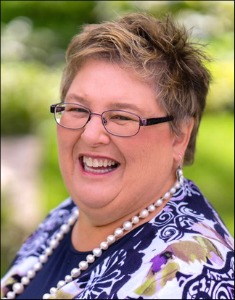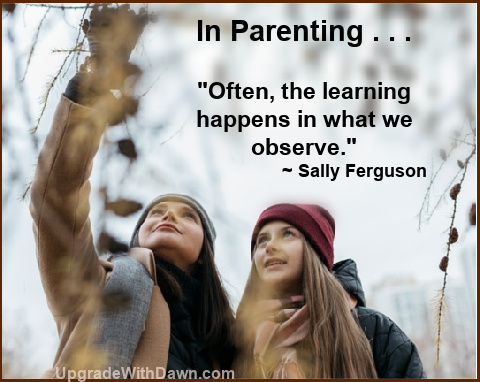Battling Fear in a Health Crisis
Joanie Shawhan doesn't just observe problem situations, she jumps into the thick of them to offer godly solutions in a practical, non-threatening way. In this Health UPGRADE, Joanie touches on a specific problem—COVID-19—but also applies it to other health battles. In the process, she helps us see there are battles beyond the physical. "I checked my texts for the umpteenth time," Joanie said. "Finally! — 'You have a new test result.”
"I checked my texts for the umpteenth time," Joanie said. "Finally! — 'You have a new test result.”
I (Dawn) understand this waiting for test results so well, and the temptation to fear during the wait. I'm glad Joanie addresses this both biblically and practically.
Joanie continues . . .
My heart pounded as I opened my online medical chart. The word “positive” jumped off the page.
COVID.
Fear threatened to swallow me.
I echoed David’s cries:
The cords of death entangled me; the torrents of destruction overwhelmed me (Psalm 18:4 NIV).
I had gone into urgent care the day before with a fever, a whopping headache, and ear pressure. I thought I had a sinus infection and swimmer’s ear. The doctor would prescribe an antibiotic and I’d quickly recover.
My first inkling I may have misdiagnosed myself arrived in the form of a staff member in full protective gear leading me down a back hallway to an isolated area of the clinic.
Was the swab really necessary? After all, it was just a sinus infection.
My wall of denial crumbled when I received a call from the medical staff.
Even more disconcerting, the medical profession offered little helpful instruction: rest, hydrate, and come to the ER for shortness of breath.
I received no comforting words, treatment, or benign reassurances.
Even though most people survived, the fear of death proved staggering. An atmosphere of fear formed a thick cloud over my reasoning.
I was on my own. I had to navigate this disease with few resources, little personal experience, and an unknown outcome. Would I survive?
I had faced the shadow of death once before when diagnosed with ovarian cancer. Now I sought comfort again from Psalm 23.
Even though I walk through the valley of the shadow of death, I will fear no evil, for you are with me; your rod and your staff, they comfort me (Psalm 23:4 ESV).
As the battle raged in my body, an even GREATER BATTLE raged against my soul.
I felt the Lord whisper, “I will not have my people living in fear.”
My real battle was FEAR, not COVID.
How would I navigate through fear and survive this dreaded disease? I needed to recognize the battle belonged to the Lord. He would provide me with a strategy.
My Battle Strategy
1. Call the Prayer Warriors.
I needed prayer, not only for healing from COVID, but to fight the fear that engulfed me. Especially since I didn’t have the strength to fight for myself.
Like a looped recording, the enemy hissed in my ear, “You could die.”
But I needed to hear a different word from my prayer warriors:
- You shall not die, but live.
- God is not finished with you yet.
These words and others pushed back the fear that I, too, would become a COVID casualty.
2. Worship.
A prayer warrior friend counselled me to immerse myself in worship.
The presence of God changed the atmosphere of fear and pushed back the darkness that obscured my thinking.
As I worshipped, I listened to a new looped recording:
God is a waymaker, he is for me, he surrounds me and fights for me.
My strength was weak, but the Lord surrounded me with his presence and pushed back the fear.
3. Replace Fear with the Word of God.
I needed to replace the voice of fear with the Word of the Lord.
These scriptures provided a lifeline for me to cling to in the midst of the fray.
- The Lord is my light and my salvation; Whom shall I fear? The Lord is the strength of my life; Of whom shall I be afraid? (Psalm 27:1 NKJV).
- So do not fear, for I am with you; do not be dismayed, for I am your God. I will strengthen you and help you (Isaiah 41:10 NIV).
4. Trust God.
While I was battling the symptoms of the disease, trusting God in the face of an unknown outcome proved challenging.
Healing from COVID could take time. Probably more time than I had patience.
But I read:
See, God has come to save me. I will trust in him and not be afraid. The Lord God is my strength and my song; he has given me victory (Isaiah 12:2 NLT).
5. Thank Him.
No matter the outcome, Jesus is my only hope. I desperately needed His presence and His perspective.
Why am I discouraged? Why is my heart so sad? I will put my hope in God! I will praise him again—my Savior and my God! (Psalm 42:11 NLT).
I am grateful not only for the Lord healing me, but for freeing me from the bondage of fear.
I cried to God in my distress and He answered me. He freed me from all my fears! (Psalm 34:4 TPT).
You too can battle fear in a health crisis!
What strategies has the Lord given you to fight fear when you feel overwhelmed by your circumstances?
Joanie Shawhan shares true-life stories, offering her reader an eyewitness view of the action. Her Selah Awards Finalist book, In Her Shoes: Dancing in the Shadow of Cancer, reflects
Awards Finalist book, In Her Shoes: Dancing in the Shadow of Cancer, reflects  the value of “your story plus my story become our stories.” An ovarian cancer survivor and registered nurse, Joanie speaks to medical students in the Survivors Teaching Students program. She co-founded an ovarian cancer social group: The Fried Eggs—Sunny-Side Up. Publishing credits include: Guideposts Divine Interventions, Wit, Whimsy & Wisdom, Life Repurposed, We May Be Done But We’re Not Finished and The Upper Room. Visit Joanie at www.joanieshawhan.com.
the value of “your story plus my story become our stories.” An ovarian cancer survivor and registered nurse, Joanie speaks to medical students in the Survivors Teaching Students program. She co-founded an ovarian cancer social group: The Fried Eggs—Sunny-Side Up. Publishing credits include: Guideposts Divine Interventions, Wit, Whimsy & Wisdom, Life Repurposed, We May Be Done But We’re Not Finished and The Upper Room. Visit Joanie at www.joanieshawhan.com.
Graphic adapted, courtesy of Fernando Zhiminaicela at Pixabay.
 Post a Comment → Posted on
Post a Comment → Posted on  Thursday, September 30, 2021 at 11:00AM
Thursday, September 30, 2021 at 11:00AM  Answering Fear,
Answering Fear,  Biblical responses to fear,
Biblical responses to fear,  Coronavirus,
Coronavirus,  Covid-19,
Covid-19,  Fear of a diagnosis,
Fear of a diagnosis,  Health crisis,
Health crisis,  Health issues,
Health issues,  Joanie Shawhan,
Joanie Shawhan,  Medical diagnosis,
Medical diagnosis,  Upgrade with Dawn Upgrade Your Life
Upgrade with Dawn Upgrade Your Life  Fighting Fear,
Fighting Fear,  Health
Health 













